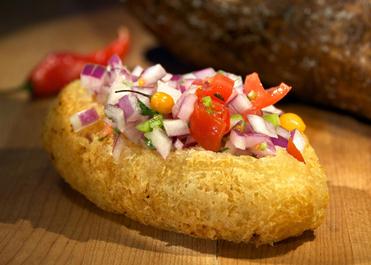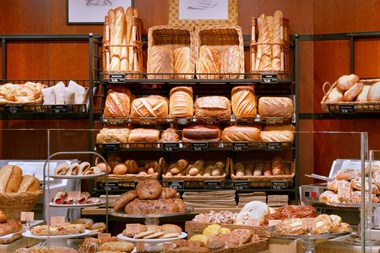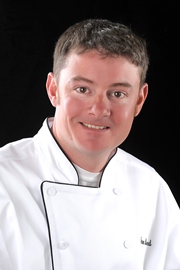An Ever-Bigger Taste of Latin America
Monday, 31 October 2011 20:39
 This year’s Latin Flavors, American Kitchens Conference emphasized cuisines from Argentina to Guatemala and identified hot trends: handheld foods, smoke, bar foods and Cocktails.
This year’s Latin Flavors, American Kitchens Conference emphasized cuisines from Argentina to Guatemala and identified hot trends: handheld foods, smoke, bar foods and Cocktails.
The kitchens of The Culinary Institute of America (CIA), San Antonio recently hosted the most prominent collection of Latin-cuisine experts from throughout the Americas. The chefs assembled in Texas for the college’s fourth-annual Latin Flavors, American Kitchens conference, October 5-7. Presenting chefs included Rick Bayless of Frontera Grill, Topolobampo and Xoco in Chicago; Roberto Santibanez of Fonda in Brooklyn; Humberto Dominguez of Restaurant Kakao in Guatemala; and the CIA’s Latin-cuisines faculty: Alain Dubernard (Mexico), Almir Da Fonseca (Brazil), Iliana de la Vega (Mexico), Elizabeth Johnson-Kossick (USA) and Sergio Remolina (Mexico).

 In a zero-growth environment, this fast-casual sub-segment continues gaining market share.
In a zero-growth environment, this fast-casual sub-segment continues gaining market share. The chef de cuisine of Corn Maiden restaurant near Santa Fe dispels some myths and misconceptions of working with chiles—while talking up their strategic use as a flavor enhancer—in menu development.
The chef de cuisine of Corn Maiden restaurant near Santa Fe dispels some myths and misconceptions of working with chiles—while talking up their strategic use as a flavor enhancer—in menu development. The NRA says the CSPI-sponsored Food Day need not be limited to one day a year. Indeed, there’s much to celebrate in light of 10% of Americans working in the restaurant industry and restaurants’ dedication to providing healthier menu options.
The NRA says the CSPI-sponsored Food Day need not be limited to one day a year. Indeed, there’s much to celebrate in light of 10% of Americans working in the restaurant industry and restaurants’ dedication to providing healthier menu options. Case studies, whether already prepared or created by you or your students, are a wonderful way to force students to interpret and analyze industry situations that are new to them—and often missing from their books.
Case studies, whether already prepared or created by you or your students, are a wonderful way to force students to interpret and analyze industry situations that are new to them—and often missing from their books.